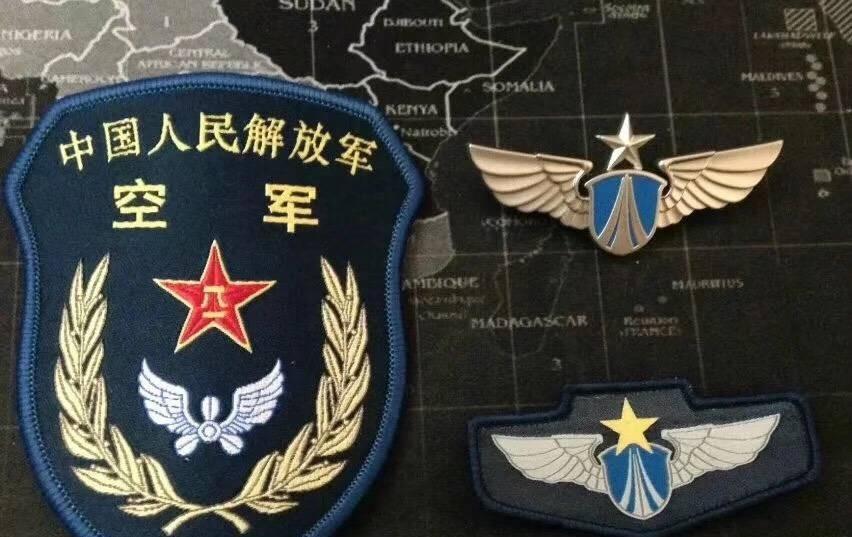Zhu Guang: Founding Colonel, Lieutenant General of the Zhengda Military Region, former Political Commissar of the Air Force, and former head of the General Political Cadre Department
From the first award of ranks in 1955 to the abolition of the military rank system in 1965, a total of 3193 colonels were awarded in China, collectively known as the founding colonels. With the passage of time, the founding generals have withered away, and the founding colonels have become less and less every year. The Founding Colonels are one step away from the Founding Generals, but their legends are also awe-inspiring. In 1988, the military rank system was restored, and the founding colonel awarded the rank of general or lieutenant general. Lieutenant General Zhu Guang, former political commissar of the Air Force, was a founding colonel with great military achievements.

Zhu Guang was born in November 1922 in Jinan, Shandong. In 1938, Zhu Guang had already begun revolutionary work in the Changqing County District Office, and had long carried out anti-Japanese activities behind enemy lines. In December 1939, Zhu Guang officially joined the Eighth Route Army, and successively served as a cadet of the Teaching Brigade of the 343rd Brigade of the 115th Division of the Eighth Route Army, the secretary of the Party Branch of the Military Brigade of the Teaching Brigade, the instructor of the 11th Team of the 2nd School of the 1st Branch of the Kang Da Branch, the instructor of the Army Middle School Department of the Jiluyu Military Region, the secretary of the General Branch of the Special Agent Battalion of the Jiluyu Military Region, and the secretary of the General Branch of the Directly Subordinate Team.
During his tenure at the 2nd School of the 1st Branch of kang da, Zhu Guang personally experienced the terrible "iron wall encirclement" and "cleansing and suppression" of the Japanese army. At that time, the Japanese army was divided into eight roads, forming a huge encirclement circle for the Jiluyu Military Region. Yang Dezhi, then commander of the Jiluyu Military Region, calmly commanded and led a large army to break through the siege. Unfortunately, Zhu Guang and the members of the Kang University are still under siege. When the ammunition ran out of food, Zhu Guang and his comrades had already pulled the grenade lead and prepared to die with the enemy. Fortunately, it was late at night, and the Japanese army did not search Zhu Guang's foothold.
During the Liberation War, Zhu Guang served as deputy chief of the Organization Section, Chief of the Military Savings Section, and Chief of the Organization Section of the Political Department of the Jiluyu Military Region. The predecessor of the 17th Army was the 11th Column of the Jin-Hebei Luyu Field Army formed by the former commander of the Jiluyu Military Region and its three independent brigades, and experienced the tortuous history of formation (March 1949), abolition (March 1952), second formation (August 1968), and second revocation (February 1973), and during the Liberation War, 32 towns above the county were liberated, and 1932 commanders and fighters sacrificed their lives for the country.
In the early days of the founding of the People's Republic of China, Zhu Guang successively served as deputy director of the Management Department of the General Cadre Department, director of the Management Department of the General Cadre Department, director of the Appointment and Removal Department of Air Force Cadres of the Cadre Department of the General Political Department, and deputy director of the Cadre Department of the General Political Department. During his tenure in the Air Force Cadre Appointment and Removal Division of the General Political Cadre Department, Zhu Guang was promoted to the rank of colonel in 1960 and became the founding colonel in the annals of history. In 1974, Zhu Guang left the cadre department where he had worked for many years to become the political commissar of the Third Army of the Air Force. In 1978, Zhu Guang became deputy director of the Political Department of the Air Force of the Shenyang Military Region, and later deputy political commissar and director of the Political Department of the Air Force of the Shenyang Military Region. Since 1981, Zhu Guang has been a full-time member of the Discipline Inspection Commission of the Central Military Commission, a member of the Standing Committee of the Discipline Inspection Commission of the Central Military Commission, and the director of the Cadre Department of the General Political Department.
In March 1985, when our army was at a historical turning point in the disarmament of the Millions, Zhu Guang, then 62, ended his military career in charge of the General Political Cadre Department and became deputy secretary of the Discipline Inspection Commission of the Central Military Commission. In July of the same year, Zhu Guang was appointed political commissar of the Air Force. In September 1988, our army officially resumed the rank system that had been suspended for 23 years, and Zhu Guang was awarded the rank of lieutenant general in the air force. According to the military rank classification at that time, the political commissar of the Air Force was at the level of Zhengda Military Region and should be awarded the rank of general. Since it was the first time that the military rank system was restored, the rank of general was mostly awarded to the founding major general, the founding lieutenant general, and even the founding general, and Zhu Guang was appointed as a lieutenant general of the Zhengda Military Region. In November 1992, Lieutenant General Zhu Guang, who was already a rare man, retired from his leadership position.